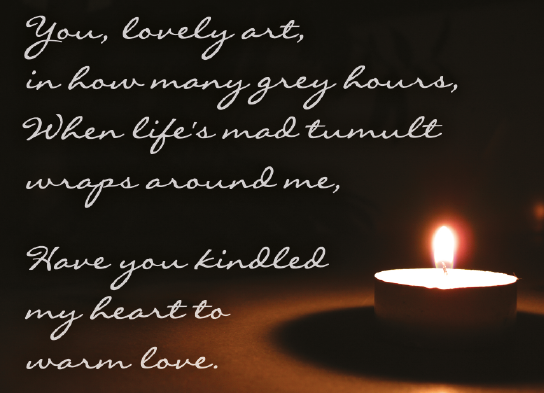Those of us whose children have forced us to listen to heavy metal know that music can cause suffering. Hannah More wrote in 1775 that “going to the opera, like getting drunk, is a sin that carries its own punishment with it”, while critic James Huneker wrote of Schoenberg that he “mingles with his music sharp daggers at white heat, with which he pares away tiny slices of his victim’s flesh”.
And music is put to many other uses that are not necessarily uplifting, such as advertising, lowest-common-denominator entertainment, ritual and vanity. Despite this, many have found music to be humanity’s best and most accessible blessing, the quickest and most reliable route to the transcendent.
As Protestant reformer Martin Luther put it rather more poetically, “Beautiful music is the art of the prophets that can calm the agitations of the soul; it is one of the most magnificent and delightful presents God has given us.”
Oscar Wilde expressed the same thought: “Music is the art which is most nigh to tears and memory.” Which of us has never been lost, rapt, in inexpressible beauty at what in scientific terms is merely the designed disturbance of air?
I, like many, have found that music can seem to redeem our suffering. In this it is closely connected to prayer: at its most effective, it can touch our inmost being and alter our orientation towards our suffering, our sorrow, our very lives.

English translation of “An die Musik” composed by Frank Schubert (1817).
Just as St Paul tells us that “we do not know how to pray as we should, but the Spirit himself intercedes for us with groanings too deep for words”, so music can operate deep below the conscious level. It liberates the psyche or the soul, it opens a channel and allows emotions to pour out that are too painful, too deep, to be faced by the conscious mind.
Many people have experienced this flood of release, cleansing and cathartic, at least for a while. At times of terrible loss, I have turned in particular to the slow movement of Schubert’s wonderful String Quintet in C major, and also Beethoven’s last piano concerto, the Emperor. Both these composers were well acquainted with suffering, and their most sublime music is often suffused with pain. That is one of the reasons their music can speak so profoundly.
My wife Morag and I lost our youngest son to leukaemia. She recalled in a reflection recently that one unrelentingly hot day not long before he died – just home from hospital, recovering from surgery for appendicitis on top of a brutal chemotherapy regime, close on the heels of radiation treatment – she and he lay on the living room floor and listened to the heart-achingly lovely Chopin’s Nocturnes.
She wrote: “On that day, in those notes of profound beauty, we were gathered up together, it seemed, in an expression of all the suffering and joy of this one little life, of all the anguish and suffering and rage and hilarity and crazy happiness of its 17 years.”
She continued: “Later in the year and on the other side of death I decided – not quite confidently – to attend a candlelit performance of Chopin Nocturnes by a visiting pianist. It is possible, I reasoned, to reach a point where tears can be bidden away and composure maintained.
“But the heart was still raw. In the candle light and the stillness of the concert hall those same notes with their fresh veil of memories were now unbearable. Unwilling to dab and blow, I let the tears dribble down to my chin and drip slowly onto my clothes, resigned to their irresistible release and reckoning that no one but me need know our Chopin secret.”
Poets, philosophers, psychologists and others have pondered the link between beauty and the spiritual. At the simplest level it is obvious: both bypass our rational self and speak straight to our emotional or spiritual being. They break through our careful defences, hammer down our resolution and denial.
I praise God that he created us with the faculty to enjoy music and the facility to create it. It’s not always that our desires and capacity to meet them are so beautifully matched.
The great conductor Sir Georg Solti spoke for many when he said: “Mozart makes you believe in God – much more than going to church – because it cannot be by chance that such a phenomenon arrives into this world and then passes after 35 years, leaving behind such an unbounded number of unparalleled masterpieces.”
Of course it is not the number of masterpieces, but where they take one. I cannot explain it: I am content for it to be part of the blessed mystery of faith. I simply conclude, with Nietzsche, that “without music life would be a mistake.”
Barney Zwartz is a Senior Fellow with the Centre for Public Christianity. He often writes about classical music for The Sydney Morning Herald and The Age. This article is an expansion of a Faith column that appeared in The Age.
Email This Story
Why not send this to a friend?


